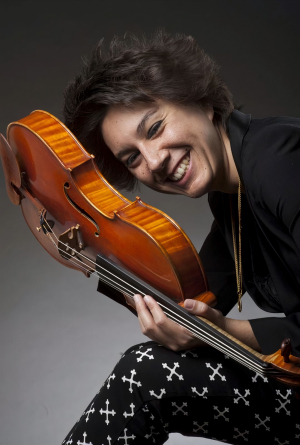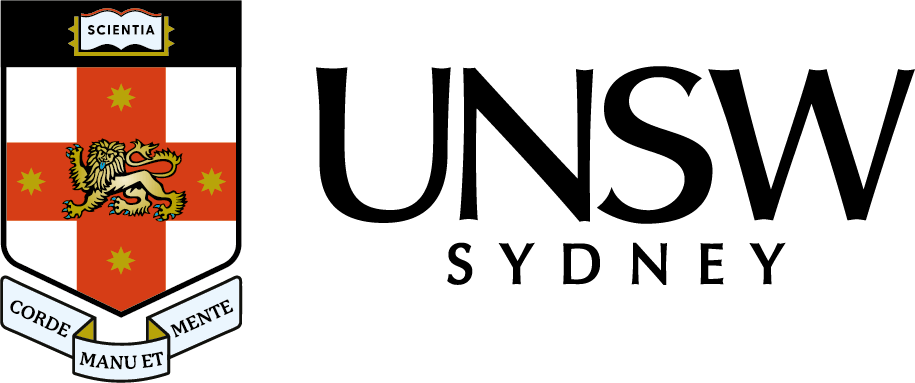Scales of Justice

Australia Ensemble UNSW's second concert of 2024 welcomes back our very own alumni, Tahlia Petrosian, law graduate to internationally acclaimed musician, director and creative producer who has had an exceptional career abroad.
Tahlia shares her journey, aspirations for the next generation of music, and what she looks forward to most in working with Australia Ensemble UNSW.
Tell us about your journey from studying law at UNSW as a student, to enjoying a multi-faceted career internationally within music.
I was awarded a scholarship to study Arts/Law at UNSW and I graduated a couple of years early in 2004. In my final year at UNSW I represented UNSW Law School in the Jessup International Mooting Competition and was also the Viola Fellow with the Sydney Symphony Orchestra, performing on a casual basis in the SSO. On graduating, I received an offer of employment with a Sydney law firm but decided to head overseas before starting work there because there was a renowned viola teacher in Berlin with whom I was keen to study. I moved to Berlin in 2005 where I studied viola at the Hanns Eisler Music School and German Law and International Law at Humboldt University. After a couple of years in Berlin, I returned briefly to Sydney to take up the offer of employment at the firm, but then decided to return to Germany and continue pursuing a career in music. I worked in orchestras in Antwerp, Berlin and London before joining the Gewandhaus Orchestra in 2012. In 2016, I started the series “KLASSIK underground”, and this led to further work ranging from creating new concert formats to consulting and creative producing within the classical music branche, all still while continuing to perform.
As a musician, director and creative producer, what are your goals and aspirations for the next generation of music, and what initiatives/projects are you working on currently?
I think that classical music needs to be aware that audience expectations have become incredibly diverse and people want different opportunities and different ways to interact with arts and culture. This was particularly noticeable after the pandemic lockdowns, because many of us became used to having a vast range of options as to how we could spend our leisure time. Although at that time this pertained to digital interactions, I think many of us have subsequently subconsciously transported this expectation of individualised or tailored interactions to the sphere of live engagement, particularly regarding arts and entertainment. Classical music also needs to consider how we can sculpt a presence for arts and culture - particularly classical music - in a world where VR and AI will be part of everyday life.
Recently I have been working with Canadian producer Alex Olegnowicz on a documentary film looking at KLASSIK underground and more broadly on orchestras in the 21st century. We have just completed post production and the documentary - “Shifting Sounds” - will be released shortly. In addition, I am working with the Schauspiel Leipzig (Theatre Leipzig) on a major production where we are transforming one of Thomas Mann’s short stories, “Mario and the Magician”, into a theatrical version and combining it with live performances of fugues from Bach’s Art of Fugue. This will be presented in Leipzig and the US next year. Upcoming projects this year are KLASSIK underground as part of the Leipzig Bach Festival in June, and a cooperation with the Leipzig Ballet in September which will explore the connection between Matisse and Ravel in a production which is a kaleidoscope of music, art and dance.
What are you looking forward to most in Australia Ensemble UNSW’s second concert?
I am excited to be performing with AE as I attended AE concerts while I was a student at UNSW! I am particularly looking forward to performing the Kegelstatt trio because, although it is really a core piece of viola chamber music repertoire, for some reason I have not played it before. And Mozart of course is always a joy for the performers and the audience - but definitely not as easy as it sounds….
Do you have any advice for students starting their career within the performing arts industry?
My advice would be to have the broadest possible basis on which to practise your craft - by that I mean that you should be knowledgeable about all art forms and art movements, languages, cultures, history, literature etc etc, that you should pursue all opportunities and if you can’t find the right opportunities for you, then create them yourself.
Tickets are still available for Australia Ensemble UNSW's second concert.
